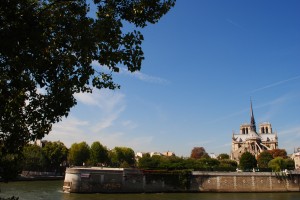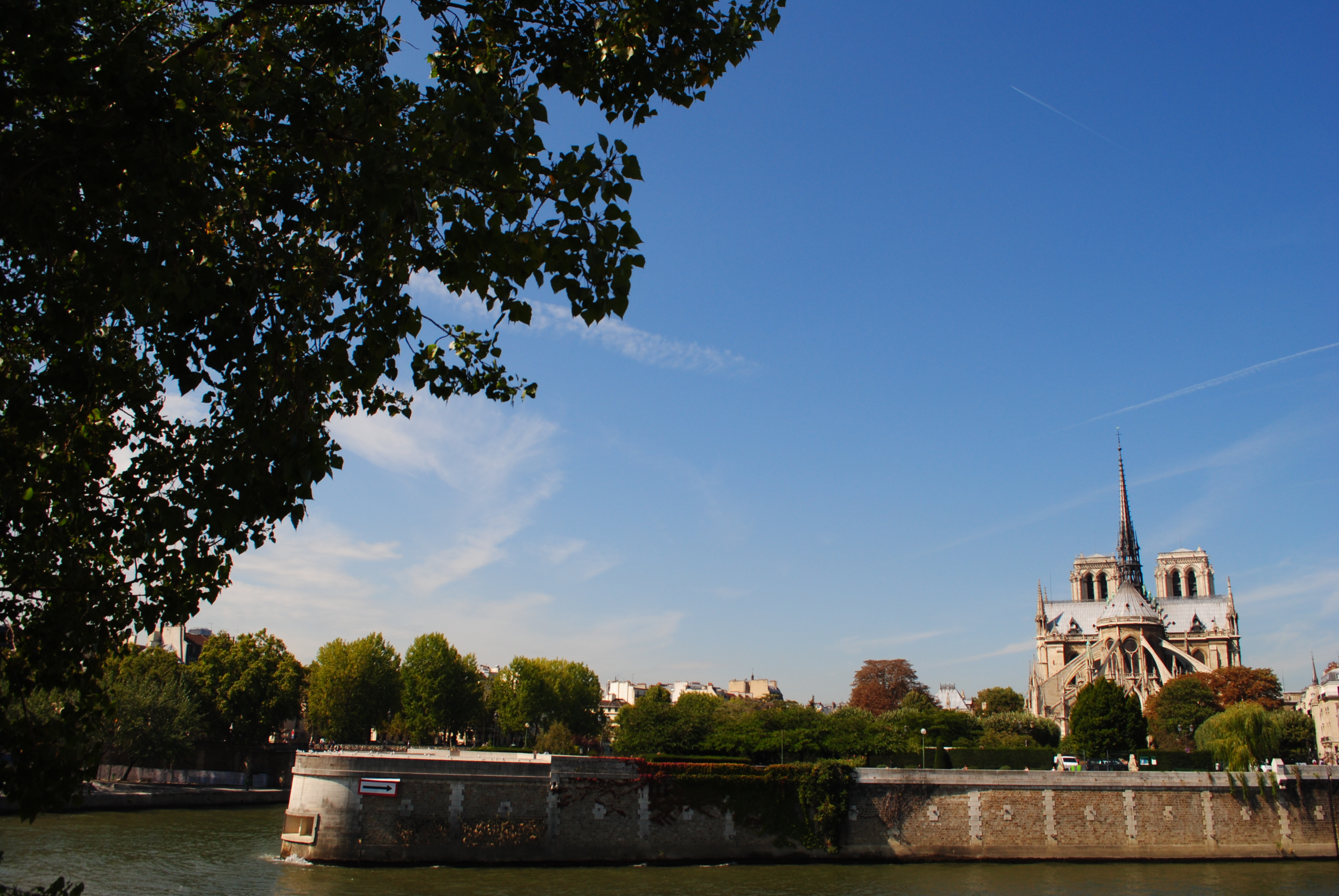
I wasn’t overly concerned about the language barrier when I first arrived in Paris. I was fluent in French at the age of three (a fluency which I later deliberately lost in an effort to annoy my mother, before having to painstakingly re-learn the language twelve years later) so I figured that I would walk off the train in Paris and magically all of my French would come back to me. And if I made a few grammar mistakes along the way, who cares?
As it turns out, I care. I have come to understand this week that I am exactly good enough at French to know how bad I am.
For example: I was sitting in the Luxembourg gardens reading a book when a group of young, drunk Frenchmen came up to me. After a few pleasantries one of them asked me if I wanted to go to dinner with him, and I responded “No thank you, I already had maps for dinner.” Later, I was trying to explain to a different French person that I love country music because it makes me nostalgic. The words for nostalgia are the same in French and English, but of course I didn’t know that until later, and was forced to stare up at the ceiling for a while before finally saying that I like country music because “it makes me a memory of my house.”
Then there are the genders. The French, perhaps in a passive aggressive attempt to ensure that no foreigner ever be able to speak their language, have assigned a gender to all nouns (David Sedaris has written brilliantly on this subject). I decided a long time ago not to concern myself with the gender of nouns because: 1. Binary gender definitions are overrated; 2. My French accent is bad enough that the difference between un (masculine) and une (feminine) is negligible; and 3. Seriously guys? You assigned a gender to all your nouns?
This nonchalance has led to people staring at me confusedly when I ask for “un baguette” at the bakery (anyone who can come up with a reason for a baguette to be feminine instead of masculine wins my eternal respect) and people laughing uproariously when I refer to “un femme,” as if by choosing the wrong article I have somehow cleverly undermined the femininity of all the women in France.
The most tiring aspect of living in a foreign language: I have to pay attention all the time. In English speaking countries, I enjoy the luxury of allowing my attention to lapse during boring conversations. It sounds rude, but we all do it. Just smile, nod, and say “uh huh” at regular intervals, and maybe you can have your shopping list planned by the time the Oxfam volunteer has stopped talking.
In France, if I employ that strategy I may end up accidentally agreeing to go back to the apartment of a 55-year-old man to drink a bottle of champagne with him and his cat, all because I wasn’t particularly interested in his detailed critique of the American political system. Or accidentally ask for two cappuccinos instead of a dessert menu at dinner. The opportunities for self-sabotage are endless. As the French would say, “il faut faire attention”. Or I think that’s what they would say, anyway. For all I know, that means “I would like a roast llama for dinner, please.”


I remember when you were not quite three in Bayeux, where we were having lunch in a very posh restaurant after our viewing of the Tapestry, when the light caught in the crystal glassware formed a perfect rainbow on the tablecloth. You piped up, in the most perfect French, “O, regardez l’arc -en-ciel!” The waitress nearly dropped her tray in surprise since she had suffered through the grown-ups sorry attempts at her language. So I think it is all in there somewhere for you. So glad you have had this wonderful chance to be young in Paris. Love, Grandma Mary